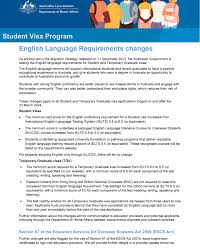Understanding the Migrant English Language Requirement

Introduction
The migrant English language requirement has become a central focus of the UK’s immigration policy, particularly following Brexit. With the government’s goal of integrating migrants into society, proficiency in English is deemed crucial for successful integration. This requirement affects thousands of potential immigrants seeking to live and work in the UK, making it vital to understand the current regulations and implications for hopeful applicants.
Current Regulations
As of late 2023, the UK government mandates that most applicants for visas such as the Skilled Worker visa, Companion visa, and others, must demonstrate a specific level of English proficiency. The minimum level typically required is B1 on the Common European Framework of Reference for Languages (CEFR), which corresponds to an intermediate level of English. Applicants can meet this requirement through various means, including passing an approved English language test, having an academic degree taught in English, or being a national of a majority English-speaking country.
Recent Developments
Recently, there have been discussions about potential changes to the migrant English language requirement in light of public feedback and labor market needs. Critics argue that the current thresholds may exclude skilled migrants from sectors experiencing acute shortages, while proponents emphasize the importance of language skills in ensuring effective communication and integration.
In February 2023, the Home Office published a report highlighting that a significant number of applications were denied due to inadequate English language skills. This has led to calls for enhancing language education and support services for migrants even before they enter the immigration process. The government is being urged to consider language proficiency not only as a barrier but as a bridge to integration.
Conclusion
The migrant English language requirement is a critical aspect of the UK’s immigration framework. With ongoing discussions about potential reforms, it remains essential for prospective migrants to stay informed about the standards and avenues available for demonstrating English proficiency. As the landscape continues to evolve, having a strong command of the English language will likely remain an invaluable asset for anyone looking to settle in the UK. The future of the UK’s immigration system will hinge significantly on balancing the need for skilled workers and ensuring they can effectively integrate into British society.
